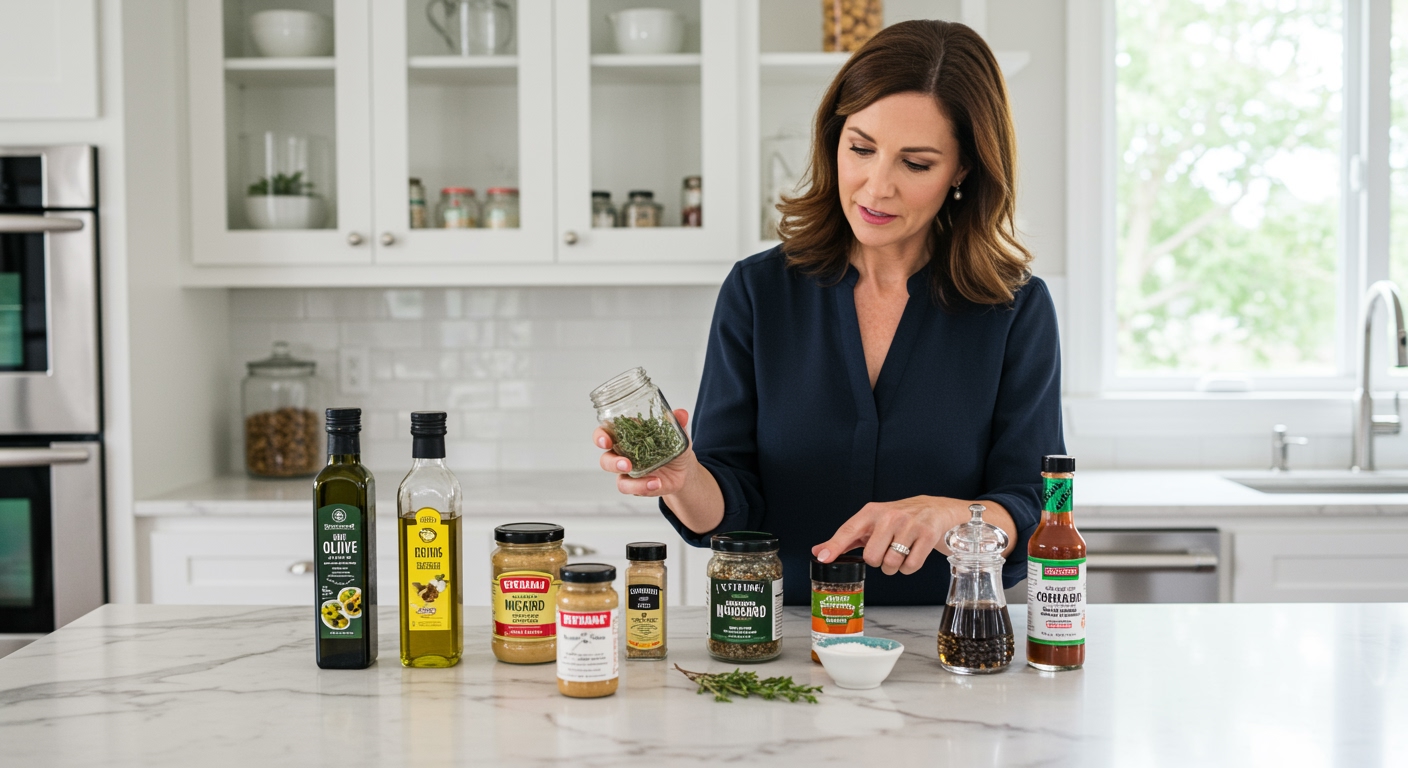✪ Key Takeaway: Zucchini can help manage blood pressure through its high potassium and magnesium content that supports healthy circulation.
Introduction
Your doctor just told you to watch your blood pressure, and now you are wondering if simple vegetables like zucchini can make a real difference.
You might be asking this question because you want natural ways to support your cardiovascular health without relying solely on medications.
Hi, I am Abdur, your nutrition coach, and today I am going to explain how zucchini can genuinely help manage your blood pressure levels through its unique nutritional profile.
What Makes Zucchini Special For Blood Pressure?
Zucchini contains an impressive amount of potassium that directly impacts your blood pressure regulation.
One medium zucchini provides about 512 milligrams of potassium, which is roughly 15% of your daily needs.
Potassium works by helping your kidneys remove excess sodium from your bloodstream through urine.
When sodium levels drop, your blood vessels can relax more easily, reducing the pressure against your artery walls.
Zucchini also contains magnesium, another mineral that supports healthy blood pressure by helping blood vessels maintain their flexibility.
The fiber content in zucchini adds another layer of cardiovascular support by helping maintain healthy cholesterol levels and supporting overall heart health.
✪ Fact: The potassium in one medium zucchini equals about half the amount found in a banana.
How Does Potassium Actually Lower Blood Pressure?
Your body maintains a delicate balance between sodium and potassium to control fluid levels in your bloodstream.
When you consume too much sodium, your body retains extra water to dilute it, increasing your total blood volume.
More blood volume means your heart must work harder to pump blood through your arteries, creating higher pressure readings.
Potassium from zucchini acts like a natural diuretic, signaling your kidneys to release excess sodium and water.
This process reduces your total blood volume, allowing your heart to pump more efficiently with less force.
Research shows that increasing potassium intake can reduce systolic blood pressure by 3-5 mmHg and diastolic pressure by 2-3 mmHg in people with elevated readings.
✪ Pro Tip: Eat zucchini with the skin on to maximize your potassium and fiber intake.
What Role Does Magnesium Play In Blood Pressure Control?
Magnesium in zucchini works differently than potassium but provides equally important cardiovascular benefits.
This mineral helps regulate calcium movement in and out of your heart muscle cells, controlling how forcefully your heart contracts.
Magnesium also acts as a natural calcium channel blocker, preventing excessive calcium from entering your blood vessel walls.
When calcium levels in vessel walls stay balanced, your arteries remain more flexible and can expand more easily when blood flows through them.
One medium zucchini provides about 33 milligrams of magnesium, contributing to the 400-420 milligrams men need daily and the 310-320 milligrams women require.
Studies indicate that people with higher magnesium intake typically have lower blood pressure readings and reduced risk of cardiovascular disease.
✪ Note: Cooking methods that preserve nutrients, like steaming or grilling, help maintain magnesium content in zucchini.
How Much Zucchini Should You Eat For Blood Pressure Benefits?
You do not need massive amounts of zucchini to see blood pressure benefits from this versatile vegetable.
Including one medium zucchini in your daily diet can provide meaningful amounts of potassium and magnesium for cardiovascular support.
The key lies in consistency rather than consuming large quantities occasionally.
You can slice zucchini into salads, spiralize it as pasta replacement, grill it as a side dish, or blend it into smoothies.
Remember that zucchini works best as part of an overall heart-healthy eating pattern that includes other potassium-rich vegetables and limits processed foods high in sodium.
Combining zucchini with other blood pressure-friendly foods like leafy greens, berries, and lean proteins creates a synergistic effect for better cardiovascular health.
✪ Pro Tip: Aim for 2-3 servings of zucchini per week as part of your overall vegetable intake goal.
Are There Any Limitations To Consider?
While zucchini offers genuine blood pressure benefits, it cannot single-handedly normalize severely elevated readings.
People taking blood pressure medications should continue their prescribed treatment while adding zucchini and other healthy foods to their diet.
Some individuals on certain diuretic medications may need to monitor their potassium levels and consult their healthcare provider about increasing potassium-rich foods.
Zucchini works best when combined with other lifestyle changes like regular physical activity, stress management, and limiting alcohol consumption.
The sodium content in your overall diet matters more than any single food, so reducing processed foods remains crucial for blood pressure management.
Think of zucchini as one valuable tool in your blood pressure management toolkit rather than a complete solution by itself.
✪ Note: Always discuss significant dietary changes with your healthcare provider, especially if you take blood pressure medications.
The Bottom Line
Zucchini can genuinely help manage blood pressure levels through its impressive potassium and magnesium content that supports healthy circulation and blood vessel function.
Small consistent changes in your daily food choices create the foundation for long-term cardiovascular health success.
I would love to hear about your experience with incorporating zucchini into your diet or any questions you might have about natural approaches to blood pressure management in the comments below.
References
At NutritionCrown, we use quality and credible sources to ensure our content is accurate and trustworthy. Below are the sources referenced in creating this article:
- Healthline: Zucchini Benefits
- Food Revolution: Zucchini Benefits
- Dr. Axe: Zucchini Nutrition
- SCIRP: Research Paper





